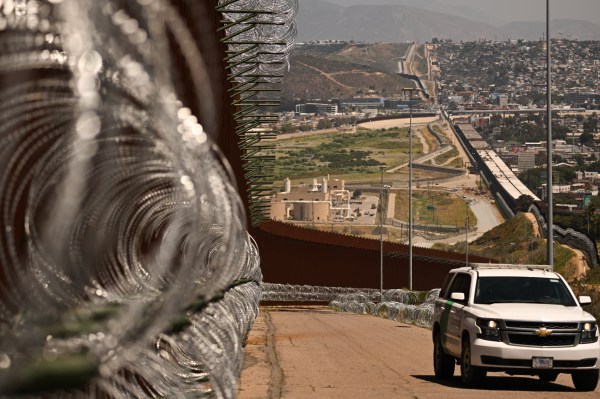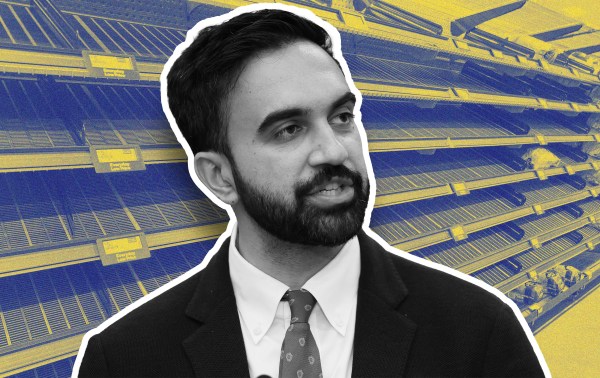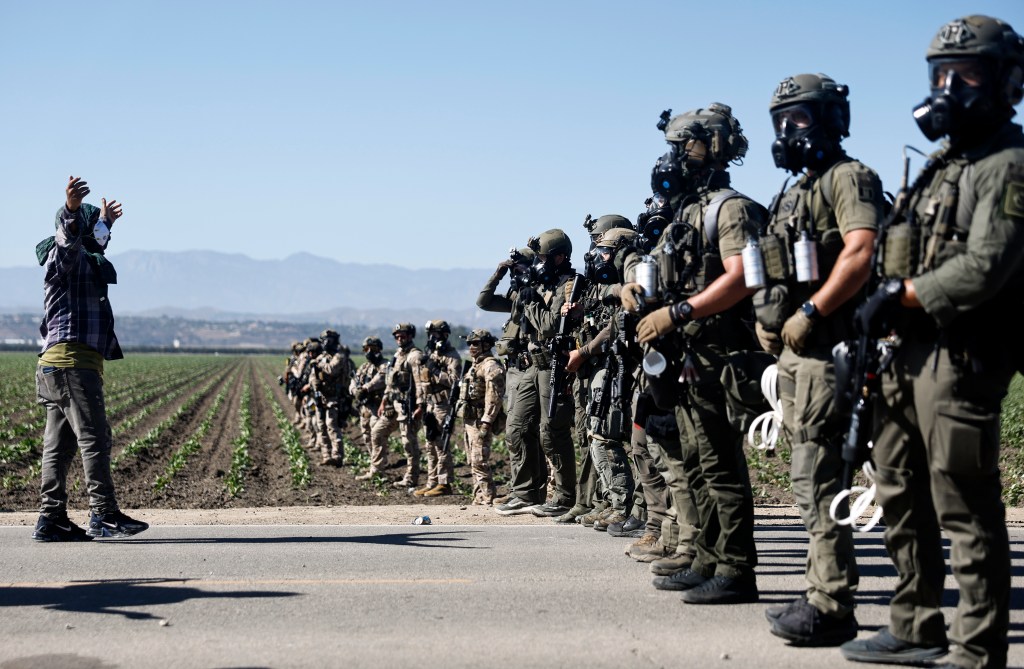Hello and happy Saturday. I’ll be honest, I am bringing more of a reader’s mentality than an editor’s mindset to the newsletter this week, as I was out of the office for a couple of days. On Thursday, I ventured down to Fort Knox in Kentucky for our oldest son’s graduation from Advanced Camp, which brings together Army ROTC cadets from all over the country to undergo training and testing: weapons qualification, land navigation, ruck marches, a series of field-training exercises, etc. How the cadets perform at Advanced Camp helps determine where they end up in the military once they are commissioned as officers.
After five weeks of intermittent communication, I was overjoyed to see our son again. But I also enjoyed meeting the friends he’d made and getting a peek at military life. We drove around the base, went to the PX, and then scooted “off post” to get him some food that wasn’t an MRE. Forgive me for being corny, but the whole experience reminded me of the great Schoolhouse Rock episode, “The Great American Melting Pot.” Our son described one friend, a Muslim cadet whose parents immigrated from Egypt, as “the most American” person he’d ever met. We saw cadets from all over the country, from every background imaginable.
Maybe it was the patriotic pomp—the color guard, the cannons being fired, the Army band playing as the cadets sang “The Army Song”—or maybe it was the poignant speech by the general, who told the cadets about the lifelong friendships he’d made during his own time at Advanced Camp and lauded them for volunteering to join a new generation of leaders. But I came away from the experience reminded that, whatever challenges we face in this current moment, America really is a land of opportunity, and I felt a little hopeful about our future.
All of which made my return to civilian life a bit of a record scratch. The Trump administration has been ratcheting up its immigration enforcement efforts, a topic The Dispatch hit pretty heavily this week.
Kevin D. Williamson reported from Los Angeles, where Immigration and Customs Enforcement (ICE) officers have been staking out Home Depot parking lots and community parks in search of illegal immigrants. He spoke to a man named Diego, who came here as a child and later received Deferred Action for Childhood Arrivals (DACA) status, but now fears going to work every day. He also interviewed officials from groups that seek to protect low-wage workers and fight for immigrant rights, noting that the work they do is immensely more valuable than “those miserable white kids whose hobby is organizing protests.” Ultimately, he concluded that the current situation is the result of generations of leaders refusing to acknowledge trade-offs:
There are many difficult things to balance in this. One—often overlooked by our progressive friends—is that U.S. immigration policy is meant to serve U.S. interests, which probably are not best served by taking in every person who has suffered some injustice, including many serious and cruel injustices, in a badly governed country somewhere in the world. Many business leaders insist that there is a labor shortage, and many progressives who would normally be inclined toward skepticism when it comes to self-serving claims from the business community accept that at face value, with no attention to the underlying economic assumptions. Drug crime and the mafias that dominate the industry are serious problems, but immigration is really incidental to that at most, the main driver of drug crime in the U.S. being U.S. demand for drugs.
Would wages for farm workers and hotel cleaners be higher if there were less immigration overall and fewer illegal workers in the market? Probably. Would prices for food and hotel rooms rise as a result? Probably. Are the people who dislike high levels of immigration on cultural rather than economic grounds racists and xenophobes? Some of them. Are there good-faith, non-economic objections to high levels of immigration and, particularly, to uncontrolled immigration? Of course. And as a matter of practical politics: Would Donald Trump be president of these United States, doing untold damage to our institutions and standing in the world, if Republicans or Democrats had taken a halfway serious approach to the very real issues related to immigration 20 years ago? I don’t think that he would.
Meanwhile, across the country in Florida, ICE has set up an encampment for detainees that is named—officially—Alligator Alcatraz. The White House promoted this effort by tweeting an AI-generated image of President Donald Trump posing with three alligators wearing ICE hats. In Boiling Frogs (🔒), Nick Catoggio has one word to describe the inanity: cringe.
But, he argued, the cringe is the point:
Another virtue of cringe is that it signals to his populist fans that they, and he, are truly in charge.
The fact that other presidents wouldn’t say the things Trump says, engage with other world leaders the way he engages, or post the nonsense he routinely posts is very much the point. Behaving like a civic slob isn’t merely something he does by nature; it’s shorthand to show MAGA that he really has ended business as usual in Washington.
His voters might prefer a president in the abstract who doesn’t capitalize words for emphasis in official correspondence like a teen girl texting a friend, but what they want more than anything else is for someone to shake up “the system.”
One of Kevin’s sources told him that, due to the fear associated with Trump’s immigration crackdown, he’s seen even American citizens carrying their passports around at all times. That fear is not unwarranted, as there have been countless anecdotes of ICE officers nabbing citizens on the streets.
But the administration is considering even more extreme action in the name of “public safety.” The Department of Justice issued a memo calling on federal prosecutors to “pursue denaturalization proceedings in all cases permitted by law and supported by the evidence.” Gil Guerra wrote an explainer detailing the legal process to strip naturalized Americans of their citizenship, and he noted that there are concerns that the process could be weaponized against political figures:
Rep. Ilhan Omar, a Minnesota Democrat who fled Somalia as a child and became a citizen in 2000, has faced persistent but unsubstantiated allegations about her immigration history from political opponents. Under the new directive’s expansive “national security” language, prosecutors could potentially revisit any naturalization file.
Perhaps most notably, Republican Rep. Andy Ogles of Tennessee has explicitly called for denaturalizing Zohran Mamdani, the Democratic nominee for New York City mayor, over rap lyrics that Ogles claimed showed support for terrorism.
Thank you so much for reading. Please also check out The Monday Essay by Nathan Beacom on artificial intelligence, Jay Cost’s entry in our Next 250 project on the Founders and factionalism, and Jonah Goldberg’s G-File on what the heck happened with Grok, Twitter’s AI chatbot, this week.

There Is No Such Thing as Artificial Intelligence

The Founders Were Right to Fear Factionalism

Artificial Unintelligence
Best of the Rest

Children Are Not a Harm to Reduce


Can Americans Love Poetry Again?

You’re Not the Chosen One

The Big Beautiful Bill’s Murky Border Security Spending

Does Zohran Mamdani Have a 9/11 Problem?

What Military Strategists Can Learn From Buddha

State-Run Supermarkets: A (Bad) Statist Solution in Search of a Problem

Russian Bombardment Tests Ukraine’s Resolve

Trump and The Restrainers










Please note that we at The Dispatch hold ourselves, our work, and our commenters to a higher standard than other places on the internet. We welcome comments that foster genuine debate or discussion—including comments critical of us or our work—but responses that include ad hominem attacks on fellow Dispatch members or are intended to stoke fear and anger may be moderated.
With your membership, you only have the ability to comment on The Morning Dispatch articles. Consider upgrading to join the conversation everywhere.